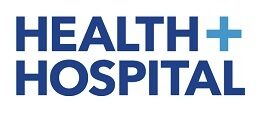
The Benefits of Embracing Non-Medication Approaches for Depression Treatment
Treatment for depression is essential for enhancing general well-being and mental health. Even though drugs can be helpful, there are strong arguments in favor of non-pharmacological depression treatment. Long-lasting relief can be obtained by non-pharmacological methods without the negative effects of antidepressants.
Find below three benefits of undergoing depression treatment without medication.
Avoiding Side Effects
Avoiding the adverse effects of antidepressants is one of the biggest advantages of non-medication depression treatment. Many undesirable side effects, such as weight gain, exhaustion, sexual dysfunction, and nausea, can be brought on by medications. Some patients may become so distressed by these adverse effects that they decide not to continue receiving medication. Effective treatment is available without these side effects from non-medication therapies including exercise, transcranial magnetic stimulation (TMS), and cognitive behavioral therapy (CBT). This enables people to preserve their physical health and quality of life while also improving their mental health.
Long-Term Effectiveness
Instead of only treating the symptoms of depression, non-medication therapies frequently target the underlying causes of the condition and offer long-term benefits. CBT and other therapies assist patients in creating coping mechanisms and altering unfavorable cognitive patterns that fuel depression. These abilities can result in long-lasting increases in resilience and mood, which lowers the risk of recurrence. Similar to this, TMS treatment promotes long-term healing by focusing on certain brain areas related to mood regulation. Non-medication therapies can have more long-lasting benefits by addressing underlying problems and encouraging healthy behaviors.
Personalized Treatment Plans
Medication-free depression treatment enables more individualized and comprehensive methods. Treatment programs can be customized by therapists and clinicians to fit the specific requirements of each patient. This might involve a mix of treatments including CBT, mindfulness, exercise, and food adjustments. Personalized programs can include a wide range of life areas and provide a thorough approach to depression management. This all-encompassing strategy can improve general well-being by strengthening relationships, daily functioning, physical and mental health, and everyday functioning.
Final Thoughts
There are several advantages to receiving depression therapy without drugs. People can enhance their general quality of life and obtain long-lasting comfort by investigating non-pharmaceutical methods. Accepting these therapies offers a comprehensive route to mental well-being and recovery from depression.
